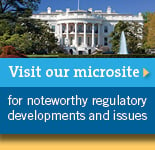On December 4, 2017, the IRS released a notice1 that describes proposed guidance the IRS and Treasury are considering with respect to donor advised funds (DAFs). The comprehensive rules governing DAFs enacted in 2006 gave rise to many interpretive questions that have remained unanswered for over a decade. Notice 2017-73 describes regulations the IRS and Treasury are considering that would establish the following rules:
-
Fulfillment of Donor Pledges: Grants from a DAF that fulfill the personal pledge of a donor, donor advisor or certain related persons (collectively, a “Donor/Advisor”) – even a legally binding pledge – would not be treated as a “more than incidental benefit” under section 4967 of the Code that gives rise to excise taxes so long as the following requirements are satisfied:
- The DAF sponsoring organization makes no reference to the existence of any charitable pledge when making the distribution from the donor’s DAF (references to the name of the person who advised on the distribution are permitted);
- No Donor/Advisor receives, directly or indirectly, any other benefit that is more than incidental on account of the DAF distribution (such as those described below or set forth in future guidance); and
- The Donor/Advisor does not claim a charitable contribution deduction for the DAF distribution, even if the charity receiving the distribution mistakenly sends the Donor/Advisor a tax acknowledgement.
The Notice provides that donors and DAF sponsoring organizations may rely on this guidance relating to fulfillment of pledges immediately.
- Charity Events and Membership Fees: Grants from a DAF that enable a Donor/Advisor to attend or participate in a charity-sponsored event would result in a more than incidental benefit, even if the Donor/Advisor pays the non-deductible portion of the cost of the ticket. This would result in a penalty excise tax on any Donor/Advisor who advises as to the distribution or who received the benefit of the payment from the DAF. The IRS has previously indicated informally that it views grants that enable a Donor/Advisor to attend an event as a violation of the rule prohibiting more than incidental benefits from DAFs. Similarly, a grant from a DAF to pay on behalf of a Donor/Advisor the deductible portion of a charity membership fee that has deductible and non-deductible portions would also result in a more than incidental benefit and penalty excise tax.
-
Public Support Test Treatment of DAF Grants: The public support test rules for qualifying as a public charity rather than a private foundation would be revised in order to “prevent the use of DAFs to circumvent the excise tax rules applicable to private foundations.” For purposes of calculating its public support percentage, an organization receiving a grant from a DAF must treat:
- A DAF sponsoring organization’s distribution from a DAF as donated by the person that funded the DAF, rather than by the sponsoring organization;
- All anonymous contributions received as being made by one person; and
- Distributions from a sponsoring organization as public support without limitation only if the sponsoring organization specifies that the distribution is not from a DAF or states that no Donor/Advisor advised on the distribution.
Such regulations, if promulgated, may make it more difficult for organizations that receive a substantial amount of their support from DAFs to qualify as publicly supported charities, because they would not necessarily be able to count distributions from DAF sponsoring organizations in full in the numerator of the public support fraction. Instead, such DAF distributions could be subject to the limitation applicable to contributions received from most donors pursuant to which a contribution is included in the numerator (the public support component of the fraction) only to the extent of 2% of the organization’s total support for the computation period.
The IRS has requested comments on the proposed guidance described above. The IRS also requested comments on uses of DAFs by private foundations, suggesting the IRS may be considering further guidance in that area.
If you have questions about the new DAF guidance or about DAFs in general, please contact a member of the Tax-Exempt Organizations or Charitable Foundations practice.
Stay Up To Date with Ropes & Gray
Ropes & Gray attorneys provide timely analysis on legal developments, court decisions and changes in legislation and regulations.
Stay in the loop with all things Ropes & Gray, and find out more about our people, culture, initiatives and everything that’s happening.
We regularly notify our clients and contacts of significant legal developments, news, webinars and teleconferences that affect their industries.

